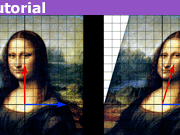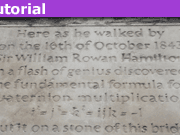How to Self Study Linear Algebra for Students
In this insight, I will give a roadmap to learn the basics of linear algebra for students. Aside from calculus, linear algebra is one of the most applicable subjects of all of mathematics. It is used a lot in engineering, sciences, computer sciences, etc. The right way to see linear algebra is with a focus on vector spaces and linear transformations. So I will suggest books with this perspective in mind.
Table of Contents
Prerequisites
There are essentially two prerequisites for studying linear algebra, besides the usual high school courses which include algebra, geometry and trigonometry (no, calculus is not a formal prerequisite). Those are that you must be used to proofs, and that you must have seen the basics of matrices and determinants.
For proofs, I recommend the following books in no particular order:
Velleman “How to prove it: a structured approach” http://www.amazon.com/How-Prove-Structured-Approach-2nd/dp/0521675995
Bloch’s “Proofs and fundamentals: a first course in abstract mathematics” http://www.amazon.com/Proofs-Fundamentals-Abstract-Mathematics-Undergraduate/dp/1441971262
Hammack’s “Book of proof” http://www.people.vcu.edu/~rhammack/BookOfProof/
These books will teach you the fundamentals of proof based mathematics, and they will teach you the basic notations and assumptions of set theory. Both will be very necessary for algebra.
As for matrices and determinants, these should be covered in basic high school books. For example
Lang’s “Basic Mathematics” http://www.amazon.com/Basic-Mathematics-Serge-Lang/dp/0387967877
Openstaxcollege’s Algebra https://openstaxcollege.org/textbooks/college-algebra
Khan Academy’s Linear algebra https://www.khanacademy.org/math/linear-algebra/matrix_transformations
Don’t worry, you don’t need to know matrices and determinants in full detail. Just knowing them for the 2×2 and 3×3 cases is already enough. In the linear algebra books which I’m going to mention, matrices and determinants will be treated in their full gory details. Also, don’t worry if you don’t have a lot of intuition for matrices and determinants, this intuition will come with studying vector spaces. Right now you are merely expected to being able to compute stuff like inverses of matrices and solving systems of equations.
Linear algebra: Introduction
Proper linear algebra deals with vector spaces and linear transformations between them. It will rigorously develop the theory of nxn matrices and determinants and apply them to geometrical and algebraic contexts. As a book, I highly recommend Friedberg, Insel, Spence’s “Linear algebra” http://www.amazon.com/Linear-Algebra-4th-Stephen-Friedberg/dp/0130084514 This book offers a very modern introduction to linear algebra. It deals with the following topics:
- Vector spaces (including linear dependence, subspaces, bases, dimension)
- Linear transformations and matrices (including rank, isomorphisms, change of basis matrices, dual spaces)
- Determinants including rigorous proofs of its properties
- Diagonalization (including eigenvalues, Markov chains, and the Cayley-Hamilton theorem)
- Inner product spaces (including Gram-Schmidt process, the spectral theorem, singular value decomposition)
- Canonical forms (including the Jordan and the rational canonical form)
For an introduction to linear algebra, I highly prefer Friedberg, Insel, Spence over other books. Nevertheless, there are some other books on linear algebra that I really like, but that are perhaps not suited for an introduction. Let me list the other books that I really like.
Linear algebra done right by Axler
This is a great book with a lot of great proofs. I do not at all recommend it as a first introduction because of its treatment of determinants. Axler actively avoids determinants and only introduces them in a very abstract way in the last chapter. I think determinants are quite important in mathematics, so it deserves better treatment than you’ll see in Axler’s book. A lot of proofs like the existence of eigenvectors are gems though.
http://www.amazon.com/Linear-Algebra-Right-Undergraduate-Mathematics/dp/3319110799
Prerequisites: A course on linear algebra like Friedberg
Linear algebra done wrong by Treil
For a long time, this has been one of my favorite books on linear algebra. But I decided it is too terse for an introduction. It is very nice as a second book because it covers a lot of cool nontraditional topics like tensors. Also, it’s free!
https://www.math.brown.edu/~treil/papers/LADW/LADW.html
Prerequisites: A course on linear algebra like Friedberg
Matrix Analysis and applied linear algebra by Meyer
This is a great book that focuses more on the applied numerical side of linear algebra. It contains a lot of insights and computational rules that cannot be found in other books of this level. Do you think that a low determinant means that a matrix is close to singular? This book will dispel you of these and similar notions.
http://www.amazon.com/Carl-D-Meyer-Analysis-Applied/dp/B008UB4KJI
Prerequisites: None
3000 Solved problems in linear algebra by Lipschutz
Do you find yourself in need of more problems, this book is filled with them. A lot of computational, but also some proofy problems.
http://www.amazon.com/000-Solved-Problems-Linear-Algebra/dp/0070380236
Prerequisites: None
Linear and geometric algebra by Macdonald
This is a book that not only covers linear algebra, but also geometric algebra. Geometric algebra is a great theory that is very applicable in physics and computer science. In mathematics, they are known as Clifford algebras. They form a neat unification of quaternions, forms, etc. It also presents a very neat way of seeing the determinant, something that introductory courses on linear algebra do not present.
http://www.amazon.com/Linear-Geometric-Algebra-Alan-Macdonald/dp/1453854932
Prerequisites: None
Geometric algebra for computer science by Dorst, Fontijne, Mann
This is an alternative for MacDonald. Don’t be turned down by “computer science” in the title, this is a really nice book that offers a lot of neat intuition on geometric algebra. It covers a lot more of Geometric algebra than MacDonalds book.
http://www.amazon.com/Geometric-Algebra-Computer-Science-Revised/dp/0123749425
Prerequisites: None
Linear algebra via exterior products by Winitzki
This is a book that covers basis-free linear algebra. It makes extensive use of the wedge product, and not of usual matrix and vector computations. It is a nice companion to learning geometric algebra. It is very good as a sequel to the usual linear algebra books.
http://www.amazon.com/Linear-Algebra-via-Exterior-Products/dp/140929496X
Prerequisites: A course in linear algebra like Friedberg
Advanced Linear Algebra by Roman
This book offers the most advanced view of linear algebra. It covers topics like modules, Hilbert spaces, and even umbral calculus. Don’t take this book lightly though, you’ll need some more knowledge and mathematical maturity to be able to handle this book. Abstract algebra, calculus, and analysis are a must. This book is a graduate book for a reason!
http://www.amazon.com/Advanced-Linear-Algebra-Graduate-Mathematics/dp/0387728287
Prerequisites: Analysis, Abstract algebra, and Linear algebra
Advanced education and experience with mathematics








I think Hoffman and Kunze is a bit abstract for most beginners, having been aimed at a junior level math major at MIT.
after reading some introductory book you might possibly gain something from my notes. In the first 3 pages I summarize the entire content of the most advanced parts of most books, the jordan and rational canonical normal forms. it is free of course. i also like shilov very much, but have not really worked through it. a lot of people, including me, like friedberg insel and spence. but they just don't tell you what is behind the results as i try to do, namely they don't mention the main idea for understanding linear transformations, i.e. minimal polynomials.
http://alpha.math.uga.edu/~roy/laprimexp.pdf
what are your thoughts on Kenneth M Hoffman's Linear Algebra textbook?
This surely fits the list: https://www.lem.ma/Made by: http://drexel.edu/coas/faculty-research/faculty-directory/PavelGrinfeld/
[QUOTE=”Calaver, post: 5460662, member: 581313″]Thank you micromass for the second insight this month that meets me where I’m at (the other was the one about advanced mathematics for high school students)!
As someone who is currently attempting to self-study linear algebra (albeit very slowly), this post helped me to see what I can expect to know once I’m done (by what micromass says the other books cover), especially since I’m using a fairly “mathematically pure” book to study from that doesn’t give much motivation the whole subject.
Since it didn’t make it on micromass’ list, I’ll go ahead and mention the book I’m using for anyone who is interested. It’s by Shilov, just called “[URL=’http://www.amazon.com/Linear-Algebra-Dover-Books-Mathematics/dp/048663518X’]Linear Algebra[/URL].” It starts from determinants, which I hear is a different approach than most books take. The second chapter is on linear spaces though, so it seems that it still gets to “the point” rather quickly. I find it excellent, and perhaps it should be considered for someone who is looking into the subject.
Although I will point out that I have no prior experience with linear algebra and have looked at no other texts, so please take micromass’ textbook advice over mine (if only this post had come out before I started to get into the book :H).[/QUOTE]
Don’t worry, Shilov is an excellent book. You really can’t go wrong with it. I personally wouldn’t recommend it because it does determinants in the beginning, which I find a fairly unintuitive and perhaps too abstract approach. Also, it never really says what a determinant is geometrically (as far as I recall). But if you like it, it’s a nice book.
Thank you micromass for the second insight this month that meets me where I’m at (the other was the one about advanced mathematics for high school students)!
As someone who is currently attempting to self-study linear algebra (albeit very slowly), this post helped me to see what I can expect to know once I’m done (by what micromass says the other books cover), especially since I’m using a fairly “mathematically pure” book to study from that doesn’t give much motivation the whole subject.
Since it didn’t make it on micromass’ list, I’ll go ahead and mention the book I’m using for anyone who is interested. It’s by Shilov, just called “[URL=’http://www.amazon.com/Linear-Algebra-Dover-Books-Mathematics/dp/048663518X’]Linear Algebra[/URL].” It starts from determinants, which I hear is a different approach than most books take. The second chapter is on linear spaces though, so it seems that it still gets to “the point” rather quickly. I find it excellent, and perhaps it should be considered for someone who is looking into the subject.
Although I will point out that I have no prior experience with linear algebra and have looked at no other texts, so please take micromass’ textbook advice over mine (if only this post had come out before I started to get into the book :H).
One thing about the Macdonald book is how surprisingly small it is (204 pages) for the amount of content it seems to cover. This is mainly for 2 reasons: (1) it handles worked exercises in a cool way and (2) he doesn’t devote space to learning what he calls algorithms (e.g. the mechanistic cookbook recipe for row reduction, etc.)
Regarding worked exercises, the trick is he has you do them! Almost every page has a couple of small exercises that relate to the text you just read. They really make you engage with the content as you go in a neat way that I haven’t seen before. Sometimes you’ll want a little scratch pad and a pencil to work it out and other times it’ll be something simple that you can work out in your head like “what happens if you set t = 0 or 1?” and then you have an aha moment as you realize it simplifies to something you’ve seen before. This is quite rewarding as opposed to being given the same information in a paragraph.
Regarding algorithms, an example is matrix inversion – he goes through the concept and applications of it, thereafter using it throughout the book but he does not devote space to building up the detailed recipe for mechanistically computing one by hand. Same goes for row reduction, determinants, eigenstuff, etc. In the Preface he argues that the recipes are not needed for theoretical development, and no one solves them by hand anymore anyways except as exercises in Linear Algebra textbooks.
Anyone intending to tackle both the Linear Algebra Insight and the Intro Analysis Insight, will probably notice that there is some overlap between the two. Micromass was kind enough to provide an efficient way to navigate through them, which he gave permission to repost here:
“So if you’re doing both of them, then I would recommend:
Do Bloch Analysis and MacDonald in parallel.
Then after Bloch do Hubbard, and after MacDonald do Axler.
This way you’ll get everything without too much repetition. MacDonald will teach you the basics of LA (vector spaces, linear transformations), but will also do geometric algebra. Hubbard will repeat the basics but not from a point of view of analysis. And Axler will do things in the most rigorous light. Avoiding determinants in Axler is not a problem since Hubbard and MacDonald cover those. What do you think? It is possible to do Treil instead of Axler if you prefer Treil, but it’s really up to you.”
Great list – thanks for putting this together!
The author of Linear and Geometric Algebra, Alan Macdonald, has put together some youtube videos in support of his book.
[URL]https://www.youtube.com/c/AlanMacdonald1/playlists[/URL]
One thing about the Macdonald book is how surprisingly small it is (204 pages) for the amount of content it seems to cover. This is mainly for 2 reasons: (1) it handles worked exercises in a cool way and (2) he doesn't devote space to learning what he calls algorithms (e.g. the mechanistic cookbook recipe for row reduction, etc.)Regarding worked exercises, the trick is he has you do them! Almost every page has a couple of small exercises that relate to the text you just read. They really make you engage with the content as you go in a neat way that I haven't seen before. Sometimes you'll want a little scratch pad and a pencil to work it out and other times it'll be something simple that you can work out in your head like "what happens if you set t = 0 or 1?" and then you have an aha moment as you realize it simplifies to something you've seen before. This is quite rewarding as opposed to being given the same information in a paragraph.Regarding algorithms, an example is matrix inversion – he goes through the concept and applications of it, thereafter using it throughout the book but he does not devote space to building up the detailed recipe for mechanistically computing one by hand. Same goes for row reduction, determinants, eigenstuff, etc. In the Preface he argues that the recipes are not needed for theoretical development, and no one solves them by hand anymore anyways except as exercises in Linear Algebra textbooks.
Anyone intending to tackle both the Linear Algebra Insight and the Intro Analysis Insight, will probably notice that there is some overlap between the two. Micromass was kind enough to provide an efficient way to navigate through them, which he gave permission to repost here:"So if you're doing both of them, then I would recommend:Do Bloch Analysis and MacDonald in parallel.Then after Bloch do Hubbard, and after MacDonald do Axler.This way you'll get everything without too much repetition. MacDonald will teach you the basics of LA (vector spaces, linear transformations), but will also do geometric algebra. Hubbard will repeat the basics but not from a point of view of analysis. And Axler will do things in the most rigorous light. Avoiding determinants in Axler is not a problem since Hubbard and MacDonald cover those. What do you think? It is possible to do Treil instead of Axler if you prefer Treil, but it's really up to you."
Great list – thanks for putting this together!The author of Linear and Geometric Algebra, Alan Macdonald, has put together some youtube videos in support of his book.https://www.youtube.com/c/AlanMacdonald1/playlists